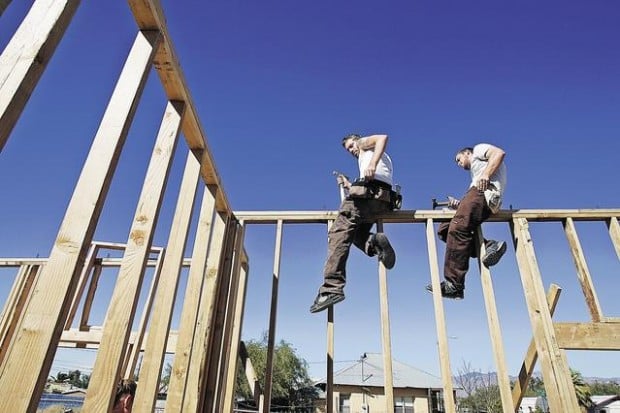Pima County Supervisors have approved a $425,000 contract with a public policy research firm to produce a new housing market study.
The goal for this housing study: To develop a public dashboard showing current, and future housing supply and demand for the region.
Research firm ECOnorthwest has one year to produce a housing market study and target market analysis. The broad goals of the effort are to determine the existing and future housing demand to 2030, establish the county’s housing unit “typologies” and detail the incomes and household makeup of county residents, according to the contract.
Goals also include determining how and where to build affordable housing, the number and location of homes at risk of foreclosure or eviction and to analyze the demand for different types of housing.
Supervisor Rex Scott, citing the National Low Income Housing Coalition, said Pima County needs about 26,000 additional units of affordable housing.
The county intends for the data to help develop a publicly available online dashboard with layers of detailed housing information for the region.
The contract was approved Tuesday on a 3-2 vote. Board Chair Adelita Grijalva, a Democrat, with District 4 Supervisor and sole Republican Steve Christy voted against the contract.
Grijalva said she had issues approving the funding because the county already knows the need for affordable housing is significant, and was skeptical a new study “telling us that would change either the resources we have to address it, or the work that’s currently being done,” will help.
“I do think that we have information that we can pull from (Emergency Eviction Legal Services and Community and Workforce Development) . . . we do have experts in-house in Pima County,” Grijalva said. “I’m trying to understand the necessity for this ‘comprehensive housing market study’ when we have realtor organizations . . . I mean, of all the places that (funding) could come from, the $5 million allocated to affordable housing, which is not enough money for us to do what we need to do. I have a really hard time with that.”
Christy questioned why staff or the Regional Affordable Housing Commission couldn’t do this study. He also questioned the need for the contract to include the option for up to four one-year contract renewals. Deputy County Administrator Francisco García told the board the intent is for the work to completed in a year and that the renewal options are “standard boilerplate renewal language.”
Funding for this study comes from the county’s “Regional Affordable Housing Fund,” which has an annual budget of $5 million. But this contract amount was approved from fiscal year 2022-23 and, according to District 2 Supervisor Matt Heinz, essentially results in no reduction of the group’s $5 million budget.
While the amount was already approved, it doesn’t mean that the actual funding for the new contract was carried into this year, Pima County Administrator Jan Lesher said Friday.
“It’s more like, if it came out of this year’s budget, we would fill that hole by transferring money from last year. If we took it out of last year’s budget, it wouldn’t create the hole this year,” she said. “I believe Supervisor Heinz was making sure that he let folks know was, funding (this) study would not diminish this year’s allocation of $5 million.”
The recommendation for supervisors to pursue such a study by the county’s Affordable Housing Task Force was initially made in the summer of 2022. That October, the board established the county’s Regional Affordable Housing Commission, − which, according to Lesher, is comprised of volunteers − and later set five goals for it. Among those was the “creation of a housing market dashboard to drive investment across the continuum,” according to a November 2023 memorandum from Lesher.
“We need more housing, but some of the specifics that we are not fully understanding initially is, what are the specifics of that, what is it we really need? Do we need rental, do we need ownership? What are the numbers of units and what size − do we need three bedroom, one bedroom? What are those kinds of needs? And then where do we need them, is there a location where we need them?” she said. “And I think when you starting getting into an area where we don’t have that expertise, it’s not only where do we need (the Commission), but how do we prioritize those needs. If we believe eventually we’re going to need a different size or a different unit, how do we prioritize it?”
On Friday, Lesher told the Star that such a study, which is set to provide information necessary for the dashboard, couldn’t be done by the commission because it wouldn’t be a good allocation of those “volunteer hours.”
“(The study would help) the commission to better understand how to prioritize, and then look at regulatory tools or something that I believe that the commission and the staff felt would be best augmented by an outside organization,” Lesher said. “I don’t want to suggest that we don’t have people on that commission that aren’t smart enough to do this, they are. We have experts on the group, but I think that we hope to utilize their volunteer time in really assessing and evaluating all the (request for proposals) and a variety of issues related to homelessness . . . (and) putting their expertise in that direction, then just letting it be augmented by the study.”





